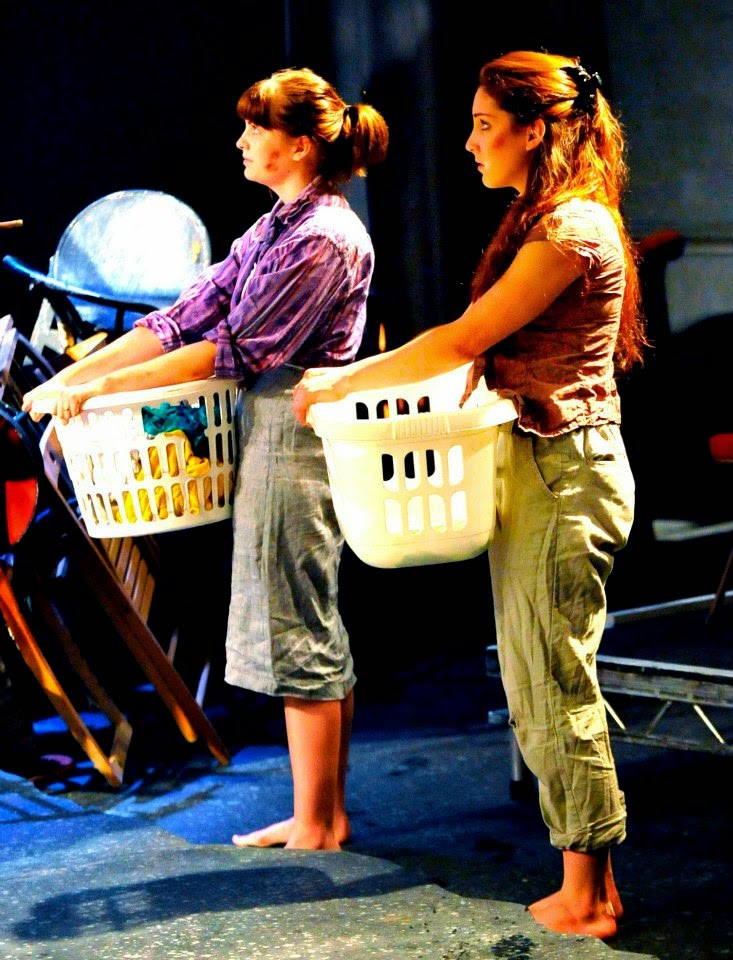
I lot of times when I tell people I have a drama related MA, I hear crickets afterwards. Honestly, this is something that lots of people with art related degrees have to contend with. But I thought I’d touch upon some of the potentially surprising things I learned in during my degree course that you might think are unrelated to acting.
There were many, many classes that were about acting techniques, improvisation, acting theories, textual analysis of plays and character etc. But I’m sure that’s what most people assume you’d learn at drama school. But maybe some of these other things will surprise you! (Or maybe they won’t)
You also get good at staying really, really still whilst holding things.1. A plethora of physical skills. I am now certified in basic stage combat, can manage pretty much all basic ballroom dances with at least a modicum of grace, and know a bunch of random historical dances (picture the scene in Pride and Prejudice where they dance holding hands.) 2. Phonetics. Because diction, pronunciation, and accents are so important we had to learn the phonetic alaphabet (I’m talking basic symbols, I’m certainly not a linguistic expert). We also had to study the evolution of RP (the closest thing to a “standard” that British English has) over time.3. We had to memorize all the bones and muscles in the human body. Never have I been more terrified for an exam than I was for this one. Luckily, I had the proven method of Sam holding my study sheets, pointing at a body part and then me naming it to help me. To this day, when I want a shoulder rub, I sometimes ask for a “trapezius rub” just to prove that all that study paid off. But why is this important to learn? Well, stage acting requires a lot of movement. And to create a character you need to get rid of your own bodily ticks so that you are adding one a characters to a blank slate instead of your own. By understanding your body better in the most technical senses you can overcome your own habitual movements. (For similar reasons, we also studied pilates, yoga, etc) 4. Vocal work. For me, this was the most difficult element of my training. Learning that the way you speak might not be the way that physically your voice is meant to be. After a lifetime, of speaking those habits are really hard to break out of. Some people habitually spoke in a lower register than they should, some higher. (I’m on the higher scale). Some people clench their jaws without realising. All these things impede the sound you make and it’s important to make yourself heard (sans mike) in this line of work. Once you learn these basics you can learn to do things like properly support screaming and yelling. You know how you’ve been to a sports game and shouted yourself hoarse the next day? Well, imagine if Hamlet did that in the last act. What would he do the next day? You learn techniques to not hurt your voice. What would you have imagined was part of an acting degree?Take a peak at this month’s featured sponsor below!


